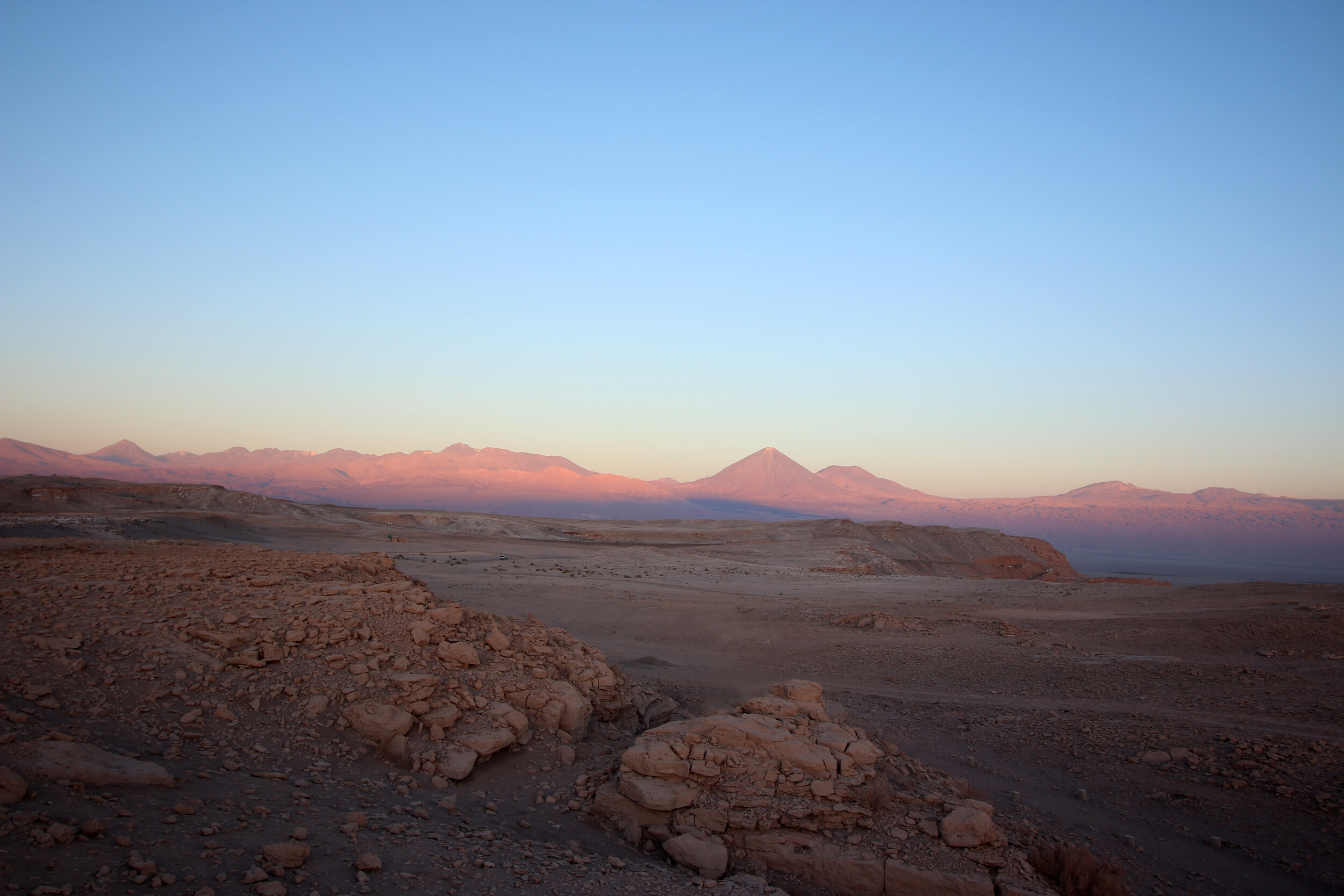Life Without Trees: What I learned in Arica, Chile
Guest Post by Ingrid Cruz
Travel used to be considered a leisure activity, but our lifestyle has environmental impacts we must learn to reckon with. Flying increases our carbon footprint and plays a part in climate change. According to The Guardian, even a short flight can cause an individual to generate more carbon emissions than people in some parts of the world would produce annually.
But appreciating changes to weather can be difficult. Heat waves and extreme cold are quickly causing environmental and physical problems. I had the opportunity to learn a bit about what our lives might be like in extreme heat when I stayed in the city of Arica, Chile for almost 6 months in late 2018-early 2019.
Arica, Chile: The Atacama Desert
Arica is a desert town in the northernmost part of Chile. It borders Peru and is well-known for its beaches, pleasant weather, and landscapes. The first thing I noticed when I arrived was the sheer amount of sand. With so few trees, there was rarely any shade and I quickly had to learn to be careful, wear sunscreen, stay hydrated, and use a hat during the day.
Local businesses tended not to be open between 1 PM and 5 PM, when the sun was at its hottest. It was common to see government-sponsored signs asking people to be cautious.
Of course, Arica is also full of athletes, surfers, and skaters. Hard-core athletes would often run at 3 PM, and I tried to train myself to run in extreme heat because I thought it would help me become a better runner. Instead, I got a light nosebleed. On at least two occasions I also experienced a heatstroke after not wearing a hat, and there were nights I was only able to sleep if I kept all my windows open.
Indeed, scientists mention that we can expect these health issues if our climate continues to change:
Heat exhaustion, which includes symptoms such as fainting, headaches, and fatigue.
Heatstroke, which can cause your body’s temperature to spike to 103ºF (39.4ºC). It’s best to get medical attention if this occurs, as it’s possible to lose consciousness during a heatstroke.
Per the Scientific American, there may be a link between excessive heat and kidney failure, but the issue is currently being researched.
Changes to climate also cause cultural shifts
To better gain a sense of some of the health issues and warnings we can expect unless we manage to stop climate change, I interviewed Olivia Molina Maidana, a lifelong resident of Arica and Languages Coordinator and professor at the Arica campus of Universidad Santo Tomás, a private university located near Arica’s downtown. She took the time to explain how Arica’s climate has changed over the years and discuss how this has changed her city.
Molina says of her experiences growing up, “Our city used to have a slogan, we used to say [Arica] is the city of eternal spring. Arica is characterized by its hot weather, but our climate was quite even all year long. When [I] was a child jackets, coats, and parkas [weren’t common]. We were able to dress the same way all year long.”
Molina also says about Arica’s weather today, “Things have been changing over the years. Seasons have become more pronounced. Winter is much colder now, and since we’re by the sea it’s much more humid. The city’s dynamics have changed.” Climate change has also forced people to make dietary changes. People tend to eat foods that are more calorie-dense in the cold, and fresher in the summer, or so she has observed.
Parts of Chile, including much of the Atacama Desert, aren’t protected from the sun’s ultraviolet rays as a result of well-documented ozone layer depletion. This increases the likelihood of getting cancer and necessitates preventative measures.
Yet another thing that affects residents of Arica is what locals call “Bolivian winter.” Parts of the state of Arica share a border with Bolivia, and some rivers in the Andes mountains connect to beaches in the city. When it rains in excess, these rivers give way and take debris down to the ocean. Human behavior contributes to pollution and garbage along rivers that wash into the shores of Arica. Last year, Arica city officials closed beaches off to the public until this debris was cleared, and the resulting humidity caused an uptick in mosquitoes.
Beating the heat
Reducing our carbon emissions is key to stopping irreversible climate change. That means finding sustainable travel methods, such as taking more busses, decreasing meat consumption, traveling locally, and reducing our dependence on plastic. Large-scale efforts also include keeping tabs on industries that emit the largest carbon footprints, such as deforestation.
In the grand scheme of things, Arica is already a desert town that would probably face issues with hot weather, but cities and towns around the world can and should pay attention to desert dwellers worldwide and listen to their needs so that we too won’t be deprived of trees and their life-sustaining benefits.








